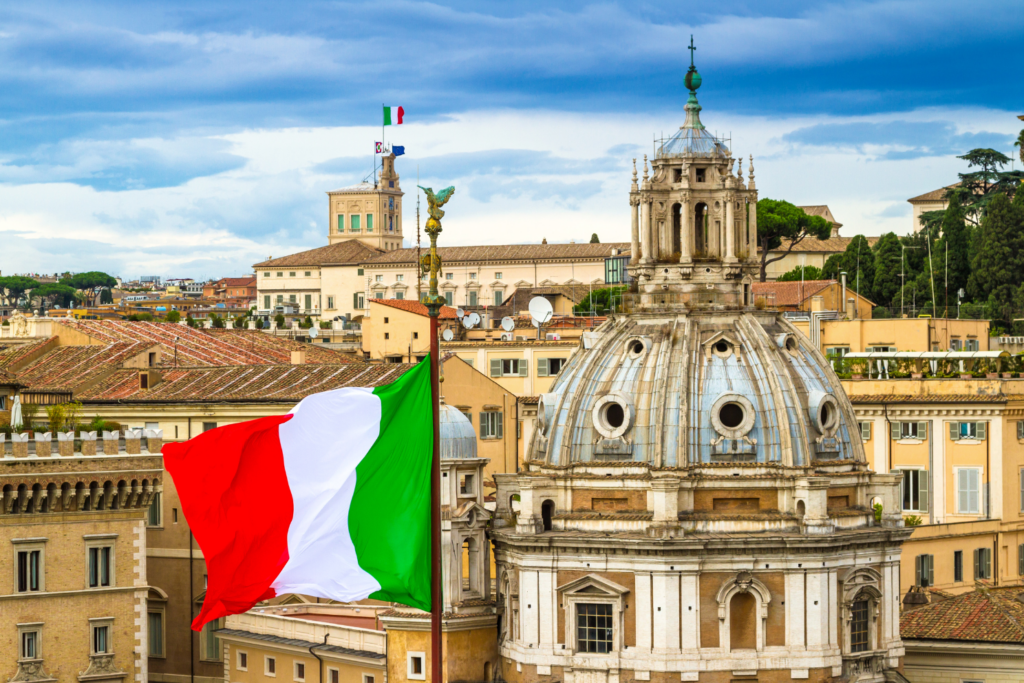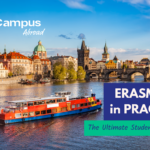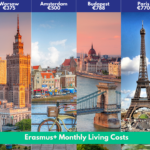
If you’re planning to join one of the many Erasmus+ programs, Italy is one of the most popular destinations for international students. An Erasmus in Italy offers a blend of top universities, culture, cuisine, and student life like nowhere else. But before you start living la dolce vita, there are a few important formalities you should know.
Codice Fiscale for Erasmus Students
One of the first things you’ll need upon arrival is the Codice Fiscale, Italy’s personal tax code, like a social security number. You’ll need it for opening a bank account, signing a rental contract, or accessing healthcare services.
For European Union citizens, obtaining the Codice Fiscale is quite straightforward. You can request it at the local Agenzia delle Entrate (Italian Revenue Agency) office by showing your passport or ID and your Erasmus documentation. The process is free, and you usually receive the number the same day.
Residence Permit in Italy and Declaration of Presence
Depending on your nationality, you may also need to deal with residency formalities.
If you are an EU citizen, you don’t need a visa to study in Italy. However, if you’re staying for more than 90 days, it’s recommended to register your stay at the local town hall (Comune) through the Anagrafe office to be listed as a temporary resident.
If you’re a non-EU student, you’ll need to apply for a residence permit in Italy (permesso di soggiorno). The application is usually submitted at the post office within 8 days of arrival and later confirmed at the police station (Questura).
Another important step is the Declaration of Presence (dichiarazione di presenza). EU students who don’t register at the Anagrafe may need this document, which simply confirms your arrival in Italy and is issued by police or border control.
Healthcare and Travel Insurance During Your Erasmus in Italy
Health is one of the most important things to sort out before your Erasmus adventure. Italy has a public healthcare system, but access and costs can vary depending on where you come from.
If you are an EU citizen, you can use your European Health Insurance Card (EHIC) to access necessary medical services during your stay. However, keep in mind that the EHIC only covers public healthcare and doesn’t include private services, repatriation, or additional expenses like lost luggage or travel delays.
That’s why many students choose to complement the EHIC with a travel insurance for Erasmus students. It gives you peace of mind, ensuring you’re covered not only for medical emergencies but also for everyday issues that might arise while living abroad.
Life and Travel Tips for Your Erasmus in Italy
Once you’ve handled the paperwork, it’s time to focus on the real Erasmus experience, living, traveling, and making the most of your time in Italy. Here are some practical tips to help you settle in and explore like a local:
Cost of living
Italy can be affordable if you avoid tourist areas. Student cities like Bologna, Padua, or Turin are generally cheaper than Milan or Rome.
Student discounts
Always carry your student ID, museums, trains, buses, and even some restaurants offer special prices. You can also use apps like The Fork to find great restaurant deals and consider getting an ESN (Erasmus Student Network) card, which gives you discounts on trips, events, and many other student-friendly businesses throughout Italy and Europe.
Language
While many Italians speak English, learning basic Italian phrases will make your daily life much easier (and Italians really appreciate the effort!). Check out our Erasmus in Bologna Guide for some useful examples.
Public transport
Most cities have monthly student passes for buses and metro. For intercity travel, book trains in advance on platforms like Trenitalia or Italo to save money. You can also use apps like Trip.com to compare schedules and prices easily.
Weekend trips
Italy is compact and well-connected. You can easily take weekend trips to Florence, Venice, or Naples from most central cities.
Low-cost airlines
Cities like Milan, Bologna, and Rome have airports with budget flights to the rest of Europe, perfect for exploring beyond Italy during your Erasmus.
Hidden gems
Don’t limit yourself to the big names. Explore smaller towns like Siena, Verona, Lecce, or Perugia, they offer genuine Italian experience and fewer tourists.
University events
Orientation weeks, Erasmus associations (like ESN), and language exchanges are the fastest ways to meet people.
Cultural habits
Dinner is late (around 8–9 pm), and coffee culture is serious, don’t order a cappuccino after 11 am if you want to blend in! In many cities, you can also enjoy the aperitivo tradition: a pre-dinner drink often accompanied by small snacks, a great way to socialize with friends and experience local nightlife.
With these tips in mind, your documents in order and your travel insurance sorted, you can fully enjoy your Erasmus in Italy, living like a local, traveling widely, and enjoying one of the richest cultural experiences Europe has to offer, without unnecessary stress.



